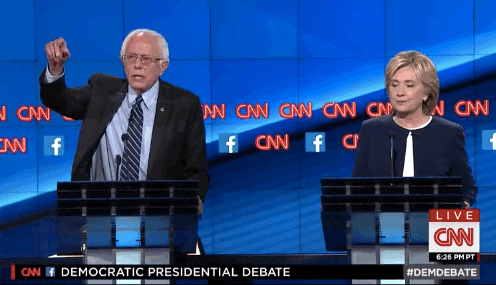Sanders waited until Monday night—weeks after forfeiting his presidential campaign soapbox, and weeks after it could have made a difference, anyway—to release the following statement on Brazil’s slow-moving crisis of democracy:
I am deeply concerned by the current effort to remove Brazil’s democratically elected president, Dilma Rousseff. To many Brazilians and observers the controversial impeachment process more closely resembles a coup d’état.
After suspending Brazil’s first female president on dubious grounds, without a mandate to govern, the new interim government abolished the ministry of women, racial equality and human rights. They immediately replaced a diverse and representative administration with a cabinet made up entirely of white men. The new, unelected administration quickly announced plans to impose austerity, increase privatization and install a far right-wing social agenda.
The effort to remove President Rousseff is not a legal trial but rather a political one. The United States cannot sit silently while the democratic institutions of one of our most important allies are undermined. We must stand up for the working families of Brazil and demand that this dispute be settled with democratic elections.
Why now? Maybe Sanders got caught up on all the shady machinations afoot in the world’s fifth-largest country in his newfound downtime. The other possibility is that Sanders shied away from foreign policy during the campaign to avoid going full lefty. Many commentators—myself included—suspected as much, when he studiously avoided criticizing Hillary Clinton’s role in the 2010 overthrow of Honduran President Manuel Zelaya, a far more clear-cut coup than even the naked political power play taking place in Brasília. Just last month, at the start of the Democratic National Convention, 40 of his congressional colleagues signed a letter calling on Secretary of State John Kerry to do more on Rousseff’s behalf. Sander’s name wasn’t on it.
